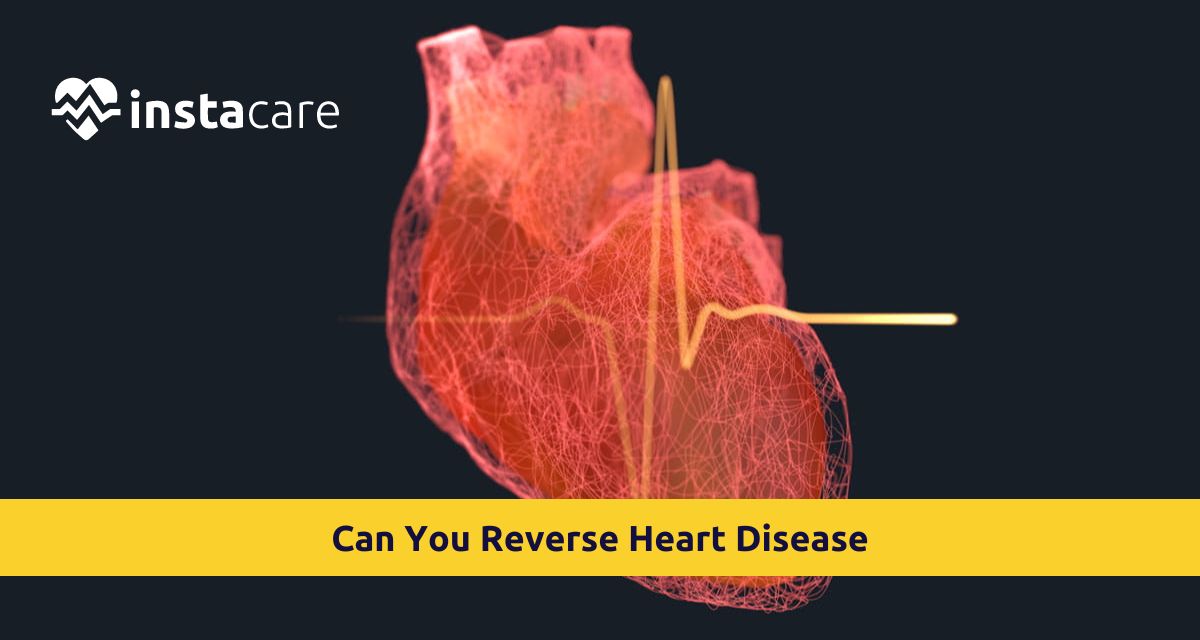Heart disease is one of the leading causes of death in the world, killing millions annually. General heart disease comprises several conditions that include CAD or coronary artery disease, heart attack, and heart failure. There have been plenty of literature circulating and flying on the medical journals and patient forums regarding the concept of reversal of heart disease.
This has triggered questions about whether such reversal of the
condition can be achieved and how it is done. According to research, though
full recovery is not there for all, many can indeed enhance their heart health
through lifestyle modifications and treatment. Exploring some of the mechanisms
behind heart disease, strategies to easily improve your heart health, and some
frequently asked questions will help us understand heart disease thoroughly in
this article.
Understanding Heart Disease
What Is Heart Disease?
By this definition, it is possible to describe all cardinal
diseases as those which in one or other way affect heart’s functioning – either
directly or indirectly. Of all these types, however, the most common is
coronary artery disease, where one or more of these arteries – or those that
branch out to the heart muscles – is constricted/ blocked because of plaque
forming on the inner linings of the arteries. Atherosclerosis however is a
disease that calls for a formation of a fatty substance of cholesterol form
inside arteries. This contributes to chest pain or Angina, heart attacks and
the rest.
Types of Heart Disease
Coronary Artery Disease (CAD)
- Heart Attack or Myocardial Infarction
- Heart Failure
- Arrhythmias
- Valvular Heart Disease
Risk Factors for Heart Disease
There are several risk factors that contribute to the development of heart disease, including:
- Hypertension or High Blood Pressure: Increases the workload
placed upon the heart and damages arteries with time.
- Hypercholesterolemia: Increased amounts of LDL (low-density
lipoprotein) cholesterol result in the deposit of plaques in the arteries with
greater risk for CAD.
- Smoking: Tobacco smoking damages blood vessels, decreases
oxygen-carrying capacity of blood, and is a major contributor to heart disease.
- Diabetes: Hyperglycemia causes damage to blood vessels as
well as the nerves that govern the heartbeat
- Obesity: Being overweight is associated with hypertension,
hypercholesterolemia, as well as diabetes.
- Sedentary Lifestyle: A sedentary lifestyle contributes to a
possibility of obesity and all the other risk factors.
- Unhealthy Diet: Diet high in saturated fats, trans fats,
salt, and sugar that heightens the prevalence of heart disease.
Effects of Heart Disease
Heart disease can have some seriously debilitating effects on one's life. Some of the effects include;
- Deterioration of physical fitness
- Prolonged weakness
- Psychological distress, tension, and depression
- Increased health care costs and family burden
Can Heart Disease be Reversed?
Definition of Reversal
Reversal of heart disease means arresting or slowing down
the progression of the disease and improving health within one's heart. To most
people, reversal might mean reduction in seriousness in symptoms, heart
function, and quality of life
Evidence-Based Strategies to Reverse Heart Disease
Lifestyle Interventions
Diet
Proper nutrition can be confirmed to be of essence in
attaining the best health of the cardiovascular system. Several dietary
patterns have been established as efficient, including: Mediterranean diets;
plant based diets; rich; fruits and vegetables; whole grain products; legumes;
nuts; healthy oils; the Mediterranean diet is rich in olive oil. These diets
have been developed to lower cholesterol, inflammation, harm macro and micro
vascular elements and functionally ameliorate cardiovascular disease.
Physical Activity
Do physical activities as often as possible to maintain a
healthy heart. Exercise strengthens the heart muscle, aids flow, and promotes
efficient weight control. Moderate-intensity aerobic exercise should be at
least 150 minutes per week or 75 minutes of vigorous exercise each week. Some
examples are the following:
- Walking or jogging
- Swimming
- Cycling
- Dancing
- Strength training exercises
Weight Loss
Attainment and maintaining a healthy weight will significantly reduce most risk factors for heart disease. So little as 5-10 pounds of weight loss will begin to make other beneficial effects, like low blood pressure, cholesterol levels, and blood sugar. Ways to achieve weight management
- Goals for losing weight are established
- Food diary is kept to track eating behaviors
- Physical activity is reported to be regular
- Healthcare provider or support groups are used
Smoking cessation
Smoking quit Smoking cessation is perhaps the most valuable
thing one can do to improve heart health. Smoking cessation dramatically
improves your chances of developing heart disease over a year of time.
Resources in smoking cessation are
- Counseling and support groups
- Nicotine replacement drugs (patches, gum)
- Prescription medications, such as varenicline or bupropion
Medical Interventions
Medications
Medications are often initiated to control risk factors of hypertension, high cholesterol, and diabetes. Commonly prescribed medications are statins, lowering LDL cholesterol and stabilizing plaques in the arteries. Other medications may include
- Antihypertensive (to lower the patient's blood pressure)
- Antiplatelet agents (to delay blood clots)
- Beta-blockers (to reduce the amount of work the heart needs
to do)
Surgical Interventions
These procedures occasionally include angioplasty or CABG to
have the blood supply to the heart restored. Surgery may help to ease the
processes connected with heart disease, which means the ailment does not
have a cure, however. Angioplasty is an operation that involves use of a
balloon that opens up constricted blood vessels. CABG offends the blocked
arteries by connecting veins from other regions of the body.
A cardiac rehabilitation therefore encompasses a combination of exercise and educational programs with formal structure for people recovering from heart issues. These all-encompassing programs typically include:
- Supervised Exercise Training: Specialized exercise plans
that are developed and enhanced gradually to improve physical fitness under the
guidance of professionals.
- Nutritional Counseling: Healthy food choices to support a
diet that is heart-healthy, and how to make those choices after leaving the
program, making changing your lifestyle the real goal.
- Stress Management Techniques: Mindfulness, relaxation
exercises, and other practices to help you contend with the stress following a
heart event.
- Support and Education: The two are providing education on
heart diseases as well as support from health personnel and equals.
- Individuals who attend such programs tend to experience
lower chances of heart conditions in the future aside from regaining much
better physical condition.
Importance of Stress Management
Chronic stress also affects the heart badly since the
increased blood pressure value creates other unhealthy behaviors such as
overeating or smoking. Means of controlling stress are mindfulness, meditation,
yoga, and getting sleep. Thus, these practices may bring a healthier living
pattern if incorporated into daily life.
Conclusion
Heart disease does not have to be a death knell. The progression of disease can be arrested and, in many cases, reversed with what we learned about lifestyle modification interventions as well as drug therapy. These include a heart-healthy diet, regular physical activity, weight management, smoking cessation, and stress reduction. Overall, comprehensive heart health needs to work through all these elements to manage the effects of heart disease for those suffering from it.
One needs to consult closely with healthcare professionals in developing an individualized plan that meets one's specific needs. The commitment made to full support catalyzes actual meaningful steps toward bettering heart health and enhancing quality of life. The journey toward healthy hearts continues, but the reward is profound: offering life, not just extra years, but also improvement in quality and wellbeing.
Please book an appointment with the Best Cardiologist in Lahore, Karachi, Islamabad, and all major cities of Pakistan through InstaCare, or call our helpline at 03171777509 to find the verified doctor for your disease.










